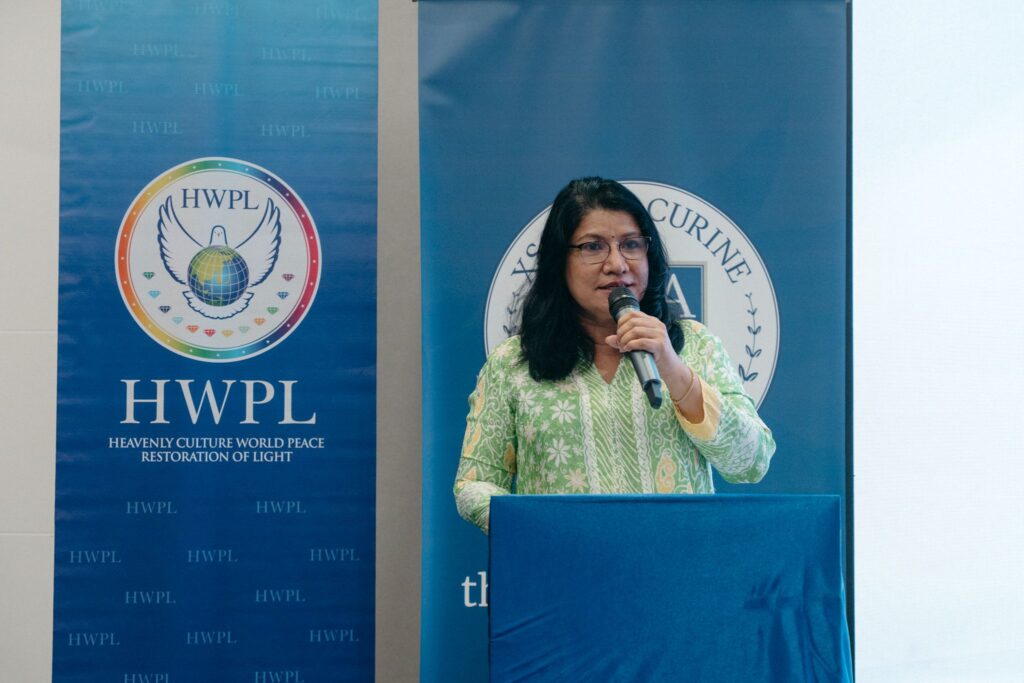
Senator Saraswathy Kandasami, Deputy Minister of National Unity
KUALA LUMPUR, April 2: When Senator Saraswathy Kandasami, the Deputy Minister of National Unity, spoke at a peace forum themed “Building Bridges for Unity” here recently, she captured the hearts of her audience with three simple yet profound words that play a critical part in promoting greater harmony in the country: Understand, Respect, and Accept.
While these words might appear ordinary in daily conversation, they hold extraordinary power when applied to the mission of fostering unity in a culturally diverse society like ours.
Moving forward, these words are also being promoted by the Ministry of National Unity as the basis for fostering greater cohesion amongst Malaysians.
And those same three words were also reinforced by National Unity Minister Datuk Aaron Ago Dagang in his recent Hari Raya message. Saying that Aidilfitri is not merely a religious celebration, it’s also a manifestation of unity that encompasses all Malaysians, regardless of religion, race, or background, he stressed.
True enough, these values of Understanding, Respect, and Acceptance shone through on the second day of Syawal following the gas pipeline mishap at Puchong. The gesture of the management of a nearby Hindu temple offering shelter to victims of the incident regardless of race and religion, and a picture of a Muslim man adhering to his solat prayers from within the temple grounds that has gone viral spoke volumes of the precious unity among the people at the grassroots level.
The keys to harmony must be cherished together, Aaron had said, and that “we should understand that diversity is a strength, respect the differences that exist, and accept each other’s uniqueness with open hearts”.
The attainment of harmonious cohesiveness among Malaysians should stem from a greater appreciation of those three words. The first, Understand, plays a critical role to lay the foundation of unity as it asks us to step into another’s shoes.
It’s more than just recognising differences; it’s about truly listening and seeking to grasp the emotions, beliefs, and experiences of others.
Understanding transforms “tolerance” into genuine empathy, allowing us to see beyond labels and stereotypes. Imagine a community where neighbours celebrate each other’s cultural festivals, not just as onlookers but as participants eager to learn and share. Such acts of understanding can really spark genuine bonds.
The second word, Respect, builds upon understanding, serving as a bridge that connects diverse perspectives. The word Respect transcends mere acknowledgement; it calls for appreciating and valuing every individual’s unique identity and contributions.
In a society where respect is mutual, differences no longer divide — they enrich us. Whether it’s the rhythmic beats of the kompang at a traditional Malay wedding, vibrant colours of the rice motifs of the kolaam during Deepavali, energetic lion dances during Chinese New Year, or the gaiety at Kaamatan or Gawai, each cultural expression deserves respect as part of our shared heritage.
Finally, Acceptance completes the trio, reminding us that unity doesn’t mean uniformity. It’s about embracing diversity as a strength, not a challenge. It requires us to let go of biases and prejudices, welcoming people for who they are, not who we expect them to be. By fostering acceptance, we pave the way for genuine inclusion, where everyone feels they belong.
When Understand, Respect, and Accept come together — they become a powerful mantra for unity. They challenge us to do more than coexist; they inspire us to connect, collaborate, and create a nation where diversity is celebrated, not just tolerated.
As Sarawathy aptly articulated, these ideals, though simple, carry the weight of our shared responsibility to build bridges and strengthen the harmony of our multicultural society. After all, unity isn’t just a concept — it’s a choice we make every day.
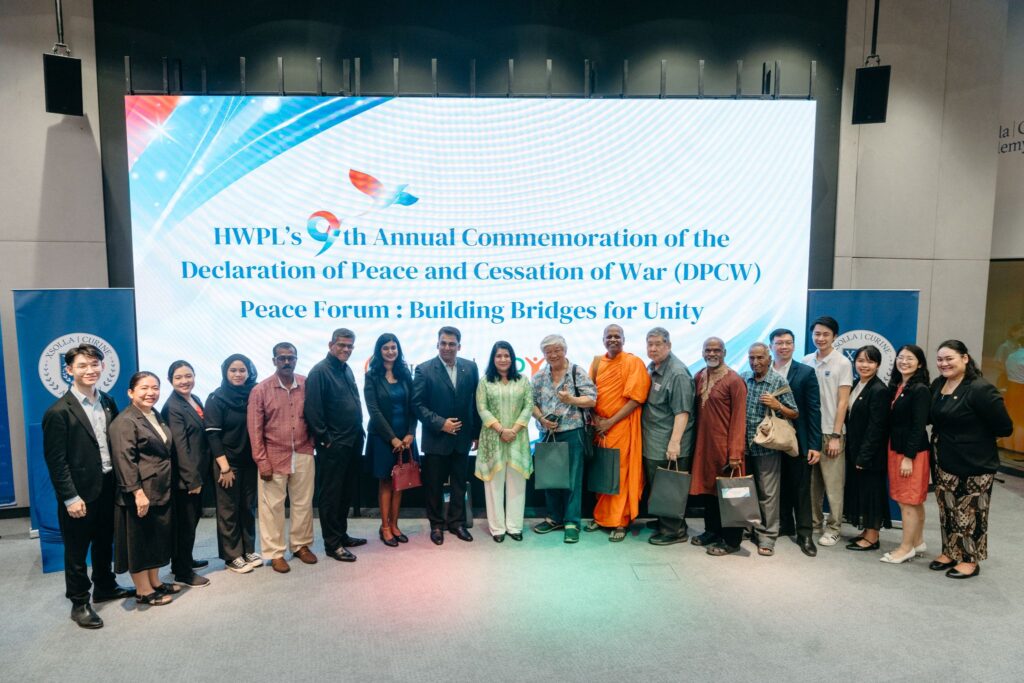
Some of the participants at the “Building Bridges for Unity” Forum with Senator Saraswathy Kandasami (centre) and HWPL Malaysia President Ning Bong (2nd from the right)
The “Building Bridges to Unity” event was organised by Persatuan Budaya Syurgawi, Kedamaian Dunia, Pemulihan Cahaya (HWPL), a global peace NGO, in collaboration with HELP University and Xsolla Curine Academy, an institute that trains young gaming software aspirants, at KL Eco-City.
It was held in conjunction with the 9th Annual Commemoration of the Declaration of Peace and Cessation of War (DPCW), a global event held in 93 countries, with a major gathering in Cheongju, South Korea, on March 14 earlier.
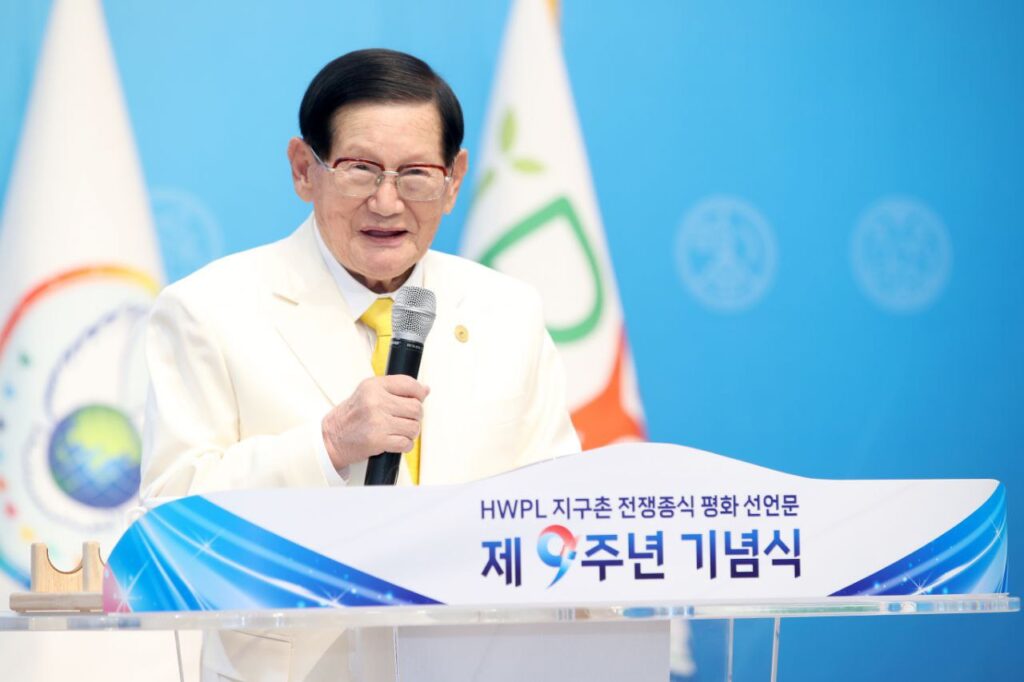
HWPL Chairman Lee Man-hee
Since March 14, 2016, HWPL, led by its Chairman Lee Man-hee, has consistently held annual commemorative ceremonies to advocate the institutionalisation of peace.
The NGO outlines the principles and tools necessary to prevent and resolve conflicts, cultivate a peaceful global society, and defines clear roles for individuals, communities, and nations to achieve lasting peace.
Ning Bong, the Kuching-based President of HWPL Malaysia, highlighted the importance of embracing Malaysia’s rich diversity and cultural heritage.
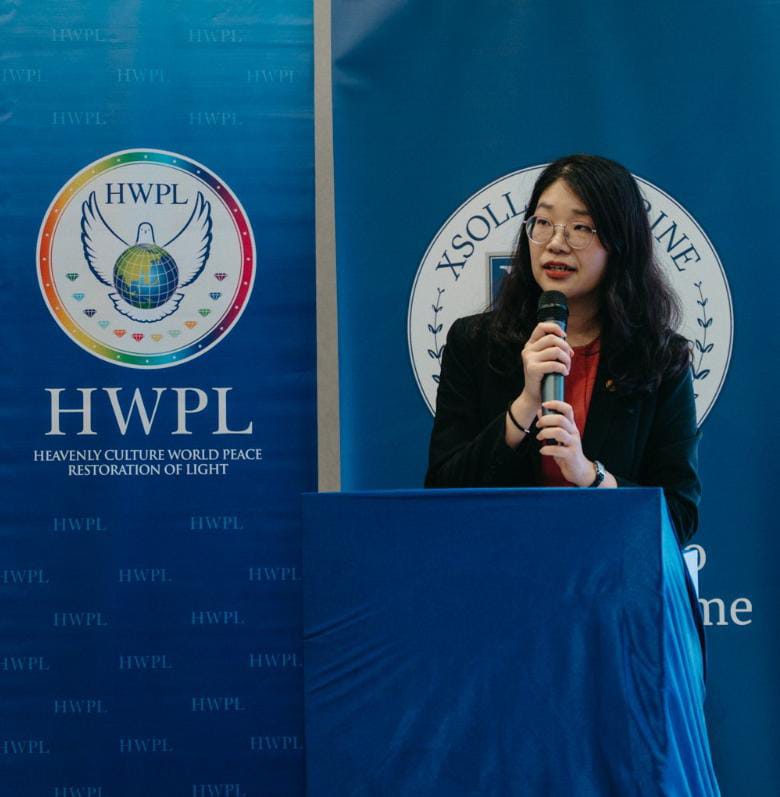
HWPL Malaysia President Ning Bong…Malaysia’s diversity is our strength
By fostering understanding and appreciation among our communities, we can strengthen the spirit of unity and peace,” she said.
Peace, she added, begins with the people. “When individuals adopt a mindset of harmony, our communities transform, and Malaysia can serve as a model of unity for the world”
In reinforcing the importance of unity and harmony, Bong emphasised that “peace cannot exist without unity, and unity requires effort, understanding, and commitment from each and every one of us.
Bong also reminded the audience, comprising of mostly young people, that “Malaysia’s diversity is our strength”.
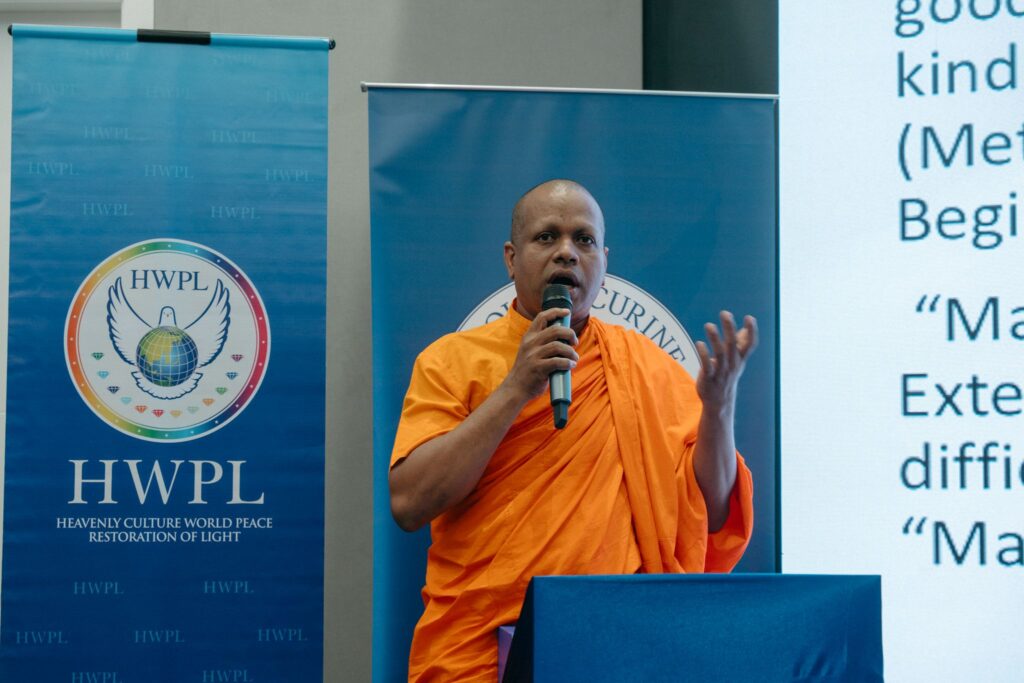
Bhante Hemaloka talking about loving kindness
Kuala Lumpur-based Buddhist monk Bhante Hemaloka stressed on the importance of cultivating loving-kindness or “Metta” and compassion to foster harmony within oneself and society.
“When you sincerely and genuinely spread your love to others, it will work,” he said.
Dr. Balachandran Krishnan, whose responsibility covers non-Islamic matters in the Terengganu Menteri Besar’s Officehad this to say: “Peace begins within us. If we do not cultivate peace in our own hearts, we cannot bring peace to the world.
“Hatred cannot cease by hatred; only love can conquer hate. If someone throws stones of hatred, we must respond with the lowers of love.”
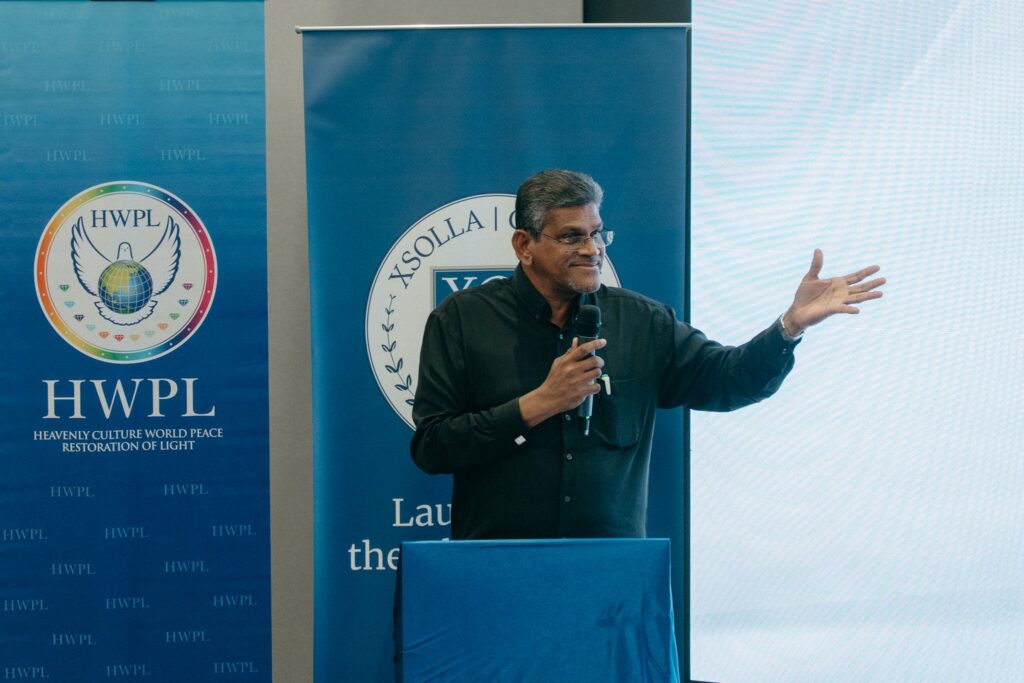
Dr Balachandran Krishnan…peace begins within us
After all, what Plato said some 2,400 years ago is still relevant today in that “The highest form of knowledge is empathy, for it requires us to suspend our egos and live in another’s world” while in much recent times actor Michael J. Fox stated: “Acceptance doesn’t mean resignation; it means understanding that something is what it is and there’s got to be a way through it.”
WE